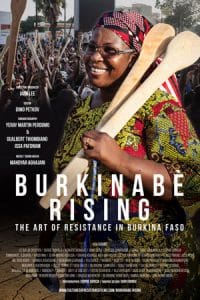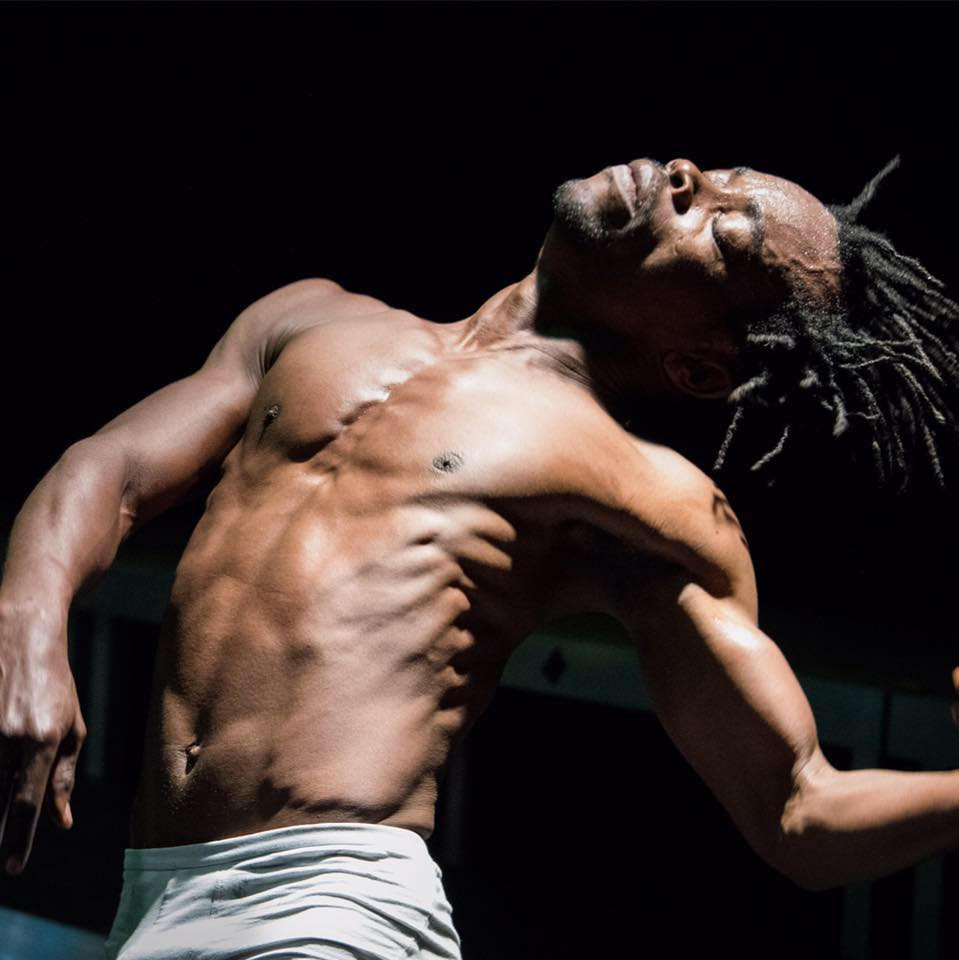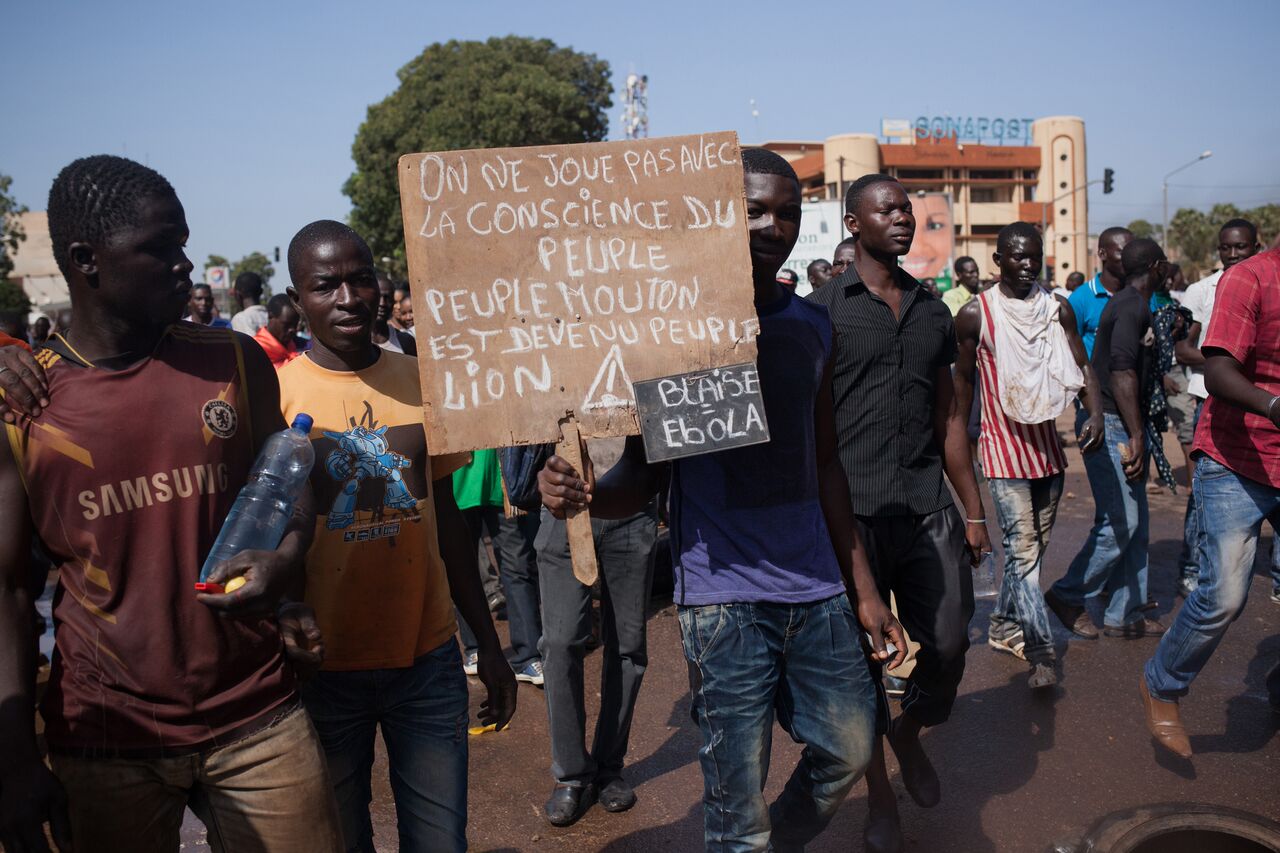
The Indian leader Mahatma Gandhi said “Be the change that you wish to see in the world”. However, one would wonder what are the chances to successfully bring a political change to a small, multicultural country through art? How can people from different ethnic groups, religions and language find a common ground to express their need for a change in their country? How can creativity and art after all, bring a political change peacefully?
“Burkina Faso is the ultimate example”, the Brazilian of Korean descent director of the documentary “Burkinabè Rising: The Art of Resistance in Burkina Faso”, Iara Lee said in an interview to the journalist Despina Afentouli.
See the NY Premiere of ‘Burkinabè Rising’ on February 28, 2018 @7:45 pm at Cinema Village (22 East 12th Street) as part of New York City’s 7th Annual Winter Film Awards International Film Festival.
“Most people don’t even know Burkina Faso is a country”, the director said, however, as she highlighted this “can create dismissal but it can also spark curiosity”.
[Burkina Faso] … “is this little, landlocked country in Africa, where the people made a revolution through their coming together”, Iara said, explaining that people “… removed a dictator who had been glued to power for 27 years and wanted to modify an article of the constitution, in order to extend his term even further!”.
“Burkina Faso is such a small country but very multicultural, with estimated 70 languages, more than 60 ethnic groups and different religions coexisting, including African animism”, the director said, emphasizing that “ […] despite their differences, people throughout the country were able to contribute to this powerful revolution that changed the destiny of the country in 2014”.
 “The attitude that I encountered was one of a lot of solidarity, especially among young people who are pursuing a common vision of a better future”, she argued.
“The attitude that I encountered was one of a lot of solidarity, especially among young people who are pursuing a common vision of a better future”, she argued.
“Sankara is an African hero, but most people don’t know much about him like they know about leaders such as Nelson Mandela”, Ms. Lee said, stressing, though, that “Today, Sankara’s spirit is everywhere in Burkina Faso”, because, as she clarified Sankara “believed in building Africa for Africans- by coming together and organizing their communities, not waiting for others to do it for them.”
Women’s contribution to the Burkina Faso society was also presented in the film, but Iara explained that, like in many places in the world, women’s work is undervalued and under-recognized: “…Without women doing their work, men could not be there on the forefront”. […], so it is time we publicly acknowledge their importance in patriarchal societies and also give them more space for leadership and positions of decision making in the political sphere.”
The director underlined that “[…] artists and musicians in Burkina Faso are reacting, embracing, but also resisting to all sorts of different influences […], from globalized media, from the country’s colonial past, from other countries in Africa, and even from the internal diversity within the country”.
However, as she revealed artists and musicians use a unique set of cultural reference points and assert a distinctive indigenous identity within a globalized culture: “It’s not a stance of isolationism so much as it is a call for us to uphold what is distinctive about our own cultures in the face of a homogenizing and profit-driven international media machine.”
“ […] A lot of times, people read, think, ‘like’ posts on social media and think this is activism, but they stay in their cocoons”, Iara said, clarifying that “[…] informing yourself is important, but we also need to get hands-on and proactive”.
 “I hope people who watch my film will find that it provides an inspiring example of how young people can use art and creativity to bring change. […] Change happens through music, art, agriculture, architecture, language…” the director stated, indicating that “To provoke change, you need everybody united…”
“I hope people who watch my film will find that it provides an inspiring example of how young people can use art and creativity to bring change. […] Change happens through music, art, agriculture, architecture, language…” the director stated, indicating that “To provoke change, you need everybody united…”
About the film
Documenting in Africa was encouraging and productive Iara said, yet she explained that it was also hard, as she and her cameraman got sick during the film production.
When Iara was stuck in bed, she mentioned that she had to find alternative ways to continue production: “My cameraman, who is from Spain and didn’t speak French, had to record my questions in French on his phone and play them to the interviewees to get the answers […] So I even had to resort to teledistance filmmaking to make it happen.”
Other difficulties included regular power and water outage, slow internet connection and translating some indigenous languages during post-production, Iara commented.
Ms. Lee said that it took her and her team about a year for filming, getting archival, editing, color correction, titles, music clearance and that they are currently handling subtitles in numerous languages, so they can screen the film in more than 100 countries in 2018.
“My small team and I work hard and efficiently, considering it is an independent low budget film, the accomplishments are also due to the collaboration and contribution from hundreds of people”, she said, explaining that they book their screenings grassroots style, counting on a network of friends, activists, NGOs, and film festivals.
To learn more about the film and the director, please visit: culturesofresistancefilms.com/burkinabe-rising

Despina Afentouli
Dr. Despina Afentouli (www.afentouli.com) is a journalist, sociologist and postdoc researcher with professional work experience in media, academic institutions and public sector worldwide. Dr. Afentouli holds a PhD in Sociology, a Master’s degree in International Journalism, and a Bachelor’s degree in International and European Studies and Translating/Interpreting (German-English). Dr. Afentouli has participated as a speaker, co-ordinator and organizer of educational seminars and cultural events.
About Winter Film Awards
New York City’s 7th Annual Winter Film Awards International Film Festival runs February 22-March 3 2018. Check out our jam-packed lineup of 93 fantastic films in all genres from 31 countries, including Animation, Drama, Comedy, Thriller, Horror, Documentary and Music Video. Hollywood might ignore women and people of color, but Winter Film Awards celebrates everyone!
Winter Film Awards is an all volunteer, minority- and women-owned registered 501(c)3 non-profit organization founded in 2011 in New York City by a group of filmmakers and enthusiasts. The program is supported, in part, by public funds from the New York City Department of Cultural Affairs in partnership with the City Council and the NY State Council on the Arts.





